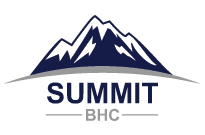 Last week we provided a crash course about the growing industry of scams that prey on individuals with substance use disorders.
Last week we provided a crash course about the growing industry of scams that prey on individuals with substance use disorders.
These schemes look promising but fail to provide adequate care. They can often be more dangerous than no treatment at all; patients are promised help but instead are exploited.
This blog post will describe the typical cycle of fraud perpetrated in the name of addiction recovery. It will include the terms you need to know to stay in the know about rehabilitation scams.
Overview of the Scam Cycle
As a refresher, here is the same outline provided in the last post that paints the situation in broad strokes:
The overall goal of the recovery center scheme in question is to exploit loopholes in health insurance. “Patient recruiters” are paid to seek out persons who either already have insurance or can be signed up for insurance – and who appear to be struggling with substance abuse. The patient is then treated to a free flight and sometimes free accommodations in a recovery center or a sober home. Then, their insurance is billed exorbitant amounts for treatment they never receive. Drugs and alcohol often pass freely through these centers. Many patients arrive sober and relapse while in the centers. Some die. The wellbeing and recovery of the patient is not considered. Profits gained from insurance fraud are the only the priority.
Patient Brokering
Patient brokers or “patient recruiters” will likely be the first point of contact between an individual seeking recovery and a predatory recovery center. These are sometimes paid employees of these recovery centers. They might also be other substance users, paid in cash, housing, or, at times, the very substances they are trying to recover from.
Their job is to bring in clients. They will entice clients, especially from out-of-state, with a free flight, room and board, and treatment.
Beware of their various strategies. Here are the two principal ones:
- Search results. Rehabs will buy ads on Google and other search engines so that when you type, “rehabs near me,” these seemingly legitimate centers will be one of the first results. From there, potential clients will often be redirected to disreputable centers, usually very far from “near me.” Google has recently revised their policies to cut down on misleading rehab advertising but it’s still important to make sure you’re dealing with a reputable company.
- Call centers. 800-numbers that appear to be for helpful call centers can also be used as biased lead generators. Recovery centers will go as far as to “edit” the Google business page of an actual center with the number of their switchboard. These operators are oftentimes incentivized to “sell” a certain center regardless of its appropriateness for the client.
Sober Homes and Communities
Once placed at a recovery facility, usually many miles from home, clients are offered housing. Sometimes insurance is billed for this too.
Of course, some sober homes and sober communities are legitimate spaces of sober and safe recovery. Unfortunately, the residences that have become associated with this scam ring are more like flop houses. Drugs and alcohol are easy to come by here, and rules are rarely enforced, if at all.
This article refers to a worst-case scenario. Nonetheless, it gives an impression of the ugly truth behind a highly neglected and dangerous form of housing: “Beds in closets. Vermin infestations. Drug-dealing house managers. Fire hazards hidden from building inspectors.”
Insurance Fraud
All cogs in this scam wheel are motivated by the prospect of squeezing money from a loophole in insurance law.
“This is an entire industry that’s been corrupted by easy money,” said Palm Beach County’s top prosecutor, State Attorney Dave Aronberg. “Unscrupulous actors have taken advantage of well-intended federal law, and a lack of any good law at the state level, to profit off people at the lowest stages of their lives.”
The latest wave of fraud is being perpetrated by way of the Affordable Care Act (Obamacare) and a law passed in 2008 called the Mental Health Parity Act. Both were designed to help Americans pay for physical and mental healthcare. Unfortunately, opportunists saw a chance to reel in insurance holders — or those who would be eligible to enroll — to their fraud machines.
One example of how these “recovery centers” can milk a patient’s insurance for hundreds of thousands of dollars comes from Palm Beach County, Florida — the “Recovery Capital” of the country.
Michelle Curran was roped into a recovery scheme where, as she was passed along from center to center, her insurance was required to cover the costs of every test, procedure, and supposed appointment with a healthcare official.
In six months the centers Michelle trusted to aid in her recovery charged over half a million dollars. She received very little actual care while the billers pocketed most of the money. Here is the breakdown:
- $609,578.78 charged to Michelle’s insurance
- $27,607.06 charged by one center in a three day period
- 224 individual charges.
This quote from Michelle’s mother speaks volumes about the true nature of this “treatment”:
“I’m like, ‘I didn’t know you saw your therapist every single day,'” Curran remembered. “So I said, ‘Are they doing drug tests every day too? I have a bill here for $10,600.’ And she goes, ‘Mom, I’ve’ — and these were her words — ‘I’ve peed in a cup twice this week.'”
Be aware of these scams. Be proactive and read about how they work — how they are too good to be true. If something feels amiss, trust your instinct and ask more questions. Get a second opinion.
Also, remember that professionals are standing by 24/7 at Summit BCH to answer your questions about our locations, services, and insurance coverage. If you ever have doubt about whether you’ve reached a generic call center or an actual facility, ask the person you’re speaking with what facility or facilities they work with.
We can start you on the road to recovery.

 Last week
Last week